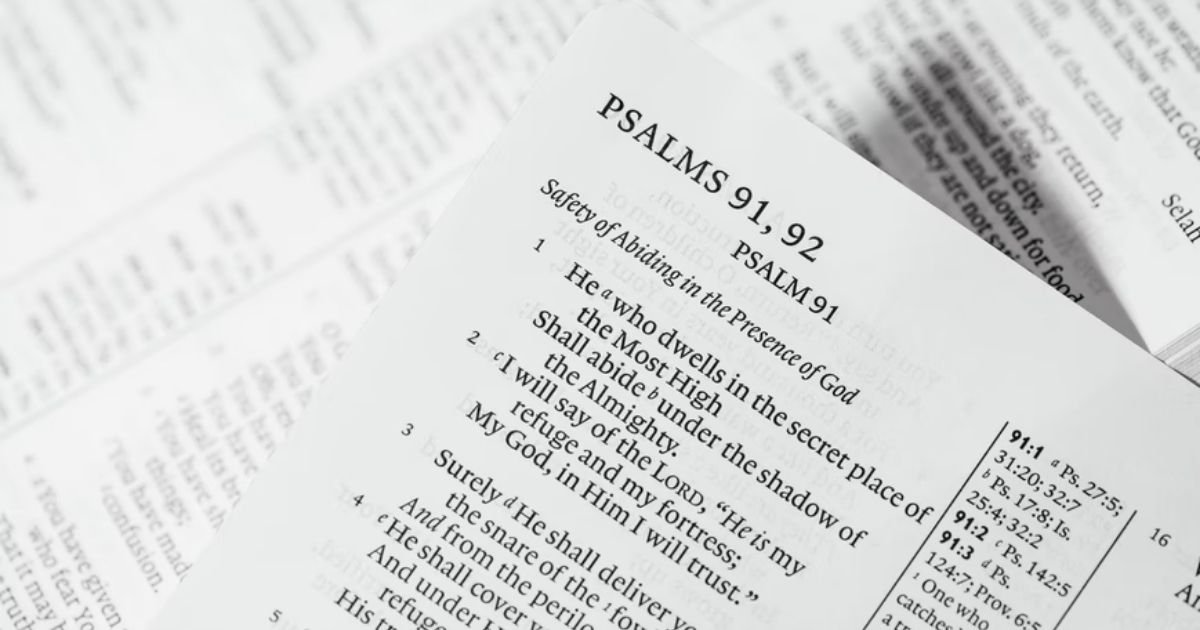Damascus, the capital city of modern-day Syria, stands as one of the oldest continuously inhabited cities in the world. Located about 50 miles inland from the Mediterranean Sea, this ancient city has witnessed thousands of years of human history.
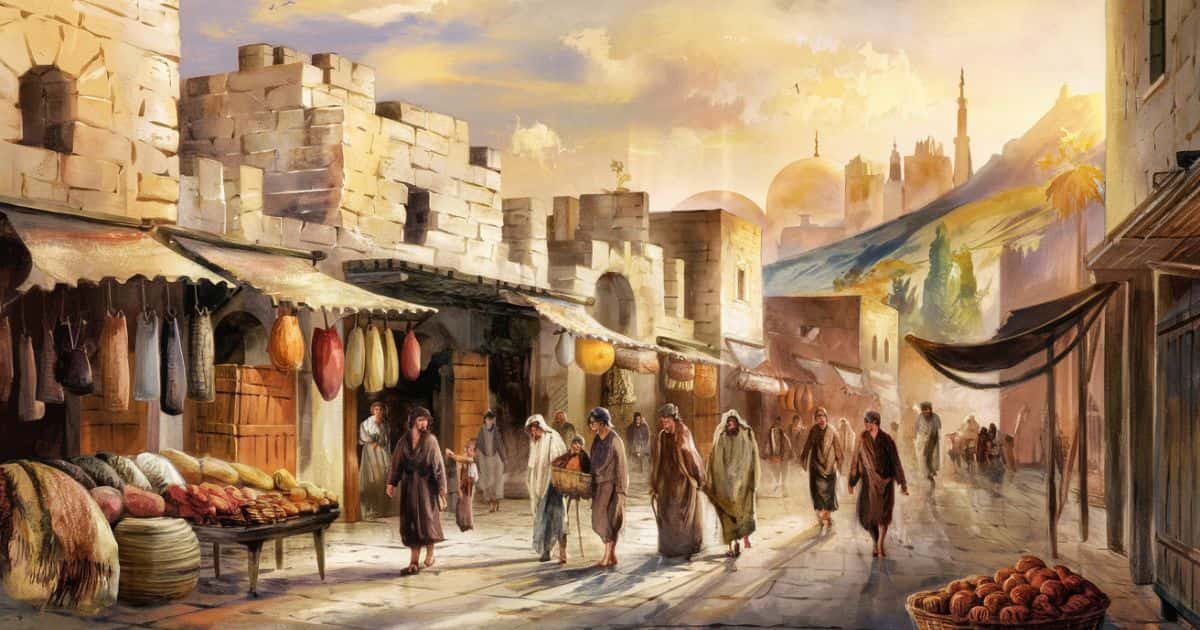
Throughout the Bible, Damascus appears at crucial moments in both the Old and New Testaments, playing significant roles in historical events and prophetic visions. Its strategic location along ancient trade routes made it a vital center of commerce and power in biblical times, a position it maintained throughout history.
Damascus in the Time of Abraham
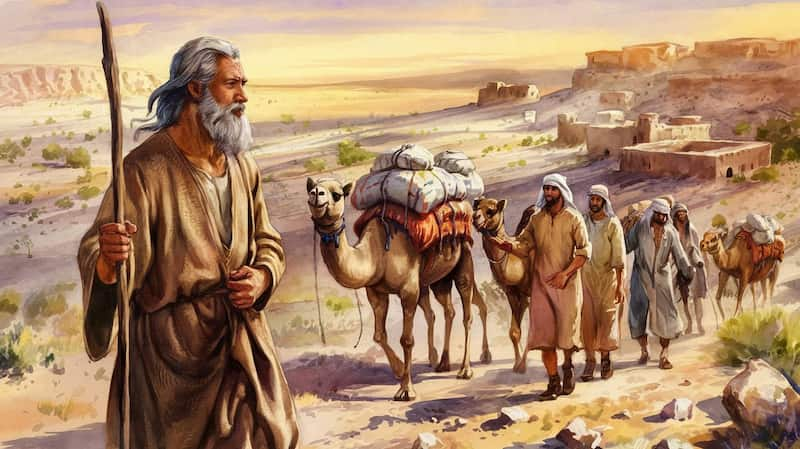
The first biblical mention of Damascus comes in Genesis 14:15, during a crucial moment in Abraham’s life. When enemy kings captured his nephew Lot, Abraham pursued them as far as Hobah, north of Damascus. This reference gives us our first glimpse of the city’s strategic importance in the region.
The Bible also tells us about Eliezer of Damascus, Abraham’s trusted servant and potential heir before the birth of Isaac. In Genesis 15:2, we find Abraham expressing his concern about having no children, saying, “Lord GOD, what will You give me, seeing I go childless, and the heir of my house is Eliezer of Damascus?” This personal connection between Abraham and Damascus shows the city’s significance even in the earliest biblical narratives.
Damascus as a Powerful Aramean Kingdom
During the time of Kings David and Solomon, Damascus rose to prominence as the capital of a powerful Aramean kingdom. The city’s growth into a regional power brought it into direct conflict with the growing Israelite kingdom.
King David’s interaction with Damascus marked a significant period in Israel’s history. According to 2 Samuel 8:5-6: “When the Syrians of Damascus came to help Hadadezer king of Zobah, David killed twenty-two thousand of the Syrians. Then David put garrisons in Syria of Damascus; and the Syrians became David’s servants, and brought tribute.” This victory demonstrated Israel’s growing power under David’s leadership.
However, this dominance didn’t last forever. During Solomon’s reign, new challenges emerged. The Bible records how Rezon, a former servant of the king of Zobah, established himself in Damascus and became Israel’s adversary (1 Kings 11:23-25).
Damascus in Prophetic Literature
The prophets often spoke about Damascus, delivering both warnings and prophecies about its future. These prophecies came during times of significant political and spiritual tension in the region.
Isaiah’s Prophecies
Isaiah delivered one of the most striking prophecies about Damascus during a time when Syria and the northern kingdom of Israel had formed an alliance against Judah. In Isaiah 17:1-3: “The burden against Damascus. Behold, Damascus will cease from being a city, and it will be a ruinous heap… The fortress also will cease from Ephraim, the kingdom from Damascus.“
This prophecy came during the Syro-Ephraimite crisis (around 734 BC), when Damascus and the northern kingdom of Israel threatened Jerusalem. The prophecy foretold not only Damascus’s destruction but also the fall of the northern kingdom.
Amos’s Prophecies
The prophet Amos spoke against Damascus during a time when the Arameans had committed brutal acts against the people of Gilead. In Amos 1:3-5: “Thus says the LORD: ‘For three transgressions of Damascus, and for four, I will not turn away its punishment, because they have threshed Gilead with implements of iron.’“
Jeremiah’s Prophecies
The prophet Jeremiah spoke about Damascus during a time of great upheaval in the ancient Near East. In Jeremiah 49:23-27, we find a detailed prophecy:
“Against Damascus. Hamath and Arpad are shamed, for they have heard bad news. They are fainthearted; there is trouble on the sea; it cannot be quiet. Damascus has grown feeble; she turns to flee, and fear has seized her. Anguish and sorrows have taken her like a woman in labor” (Jeremiah 49:23-24).
This prophecy came when Babylon was rising to power. God revealed through Jeremiah that Damascus would face judgment, losing its strength and influence in the region.
Paul’s Conversion on the Damascus Road
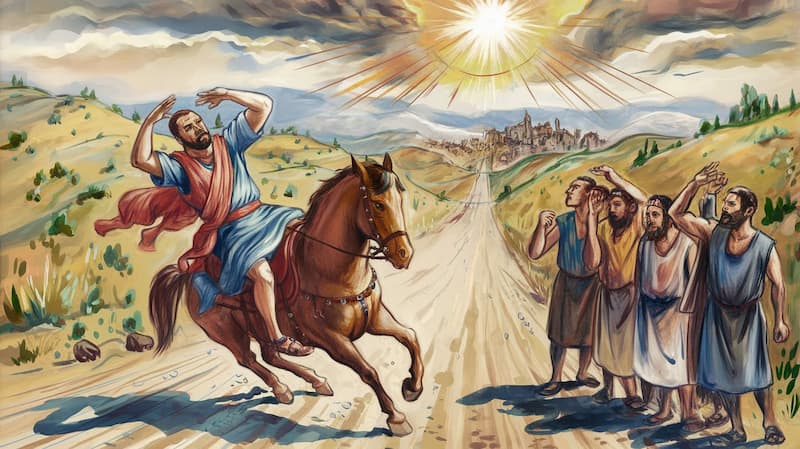
The most dramatic New Testament account involving Damascus centers on the conversion of Saul, who later became the apostle Paul. The story, recorded in Acts 9, marks one of the most significant turning points in Christian history.
Saul was traveling to Damascus with official letters from the high priest, authorizing him to arrest followers of Jesus. The Bible tells us: “As he journeyed he came near Damascus, and suddenly a light shone around him from heaven. Then he fell to the ground, and heard a voice saying to him, ‘Saul, Saul, why are you persecuting Me?’” (Acts 9:3-4).
After this divine encounter, Saul lost his sight. His companions led him into Damascus to a street called Straight, where he stayed at the house of a man named Judas. For three days, Saul remained blind, neither eating nor drinking, as he processed this life-changing encounter.
The Lord then spoke to a disciple named Ananias, instructing him to go to Saul: “Go, for he is a chosen vessel of Mine to bear My name before Gentiles, kings, and the children of Israel” (Acts 9:15).
When Ananias laid hands on Saul, scales fell from his eyes, and he regained his sight. Immediately after his baptism, Saul began preaching in the Damascus synagogues that Jesus is the Son of God.
Damascus’s Strategic Importance
Throughout biblical history, Damascus maintained its significance for several key reasons. Its location made it a crucial crossroads of the ancient world, positioned perfectly between major civilizations and trade routes.
The Bible gives us glimpses of Damascus’s importance through various accounts. When describing the wealth of King Solomon’s kingdom, Scripture tells us: “Now the weight of gold that came to Solomon yearly was six hundred and sixty-six talents of gold, besides what the traveling merchants and traders brought” (1 Kings 10:14-15). Damascus played a vital role in this trade network, connecting routes from Asia Minor, Egypt, and Mesopotamia.
The city’s agricultural prosperity came from its location near the Anti-Lebanon Mountains and the Barada River. This matches the biblical description when Naaman, the Syrian commander, spoke of Damascus’s waters: “Are not the Abanah and the Pharpar, the rivers of Damascus, better than all the waters of Israel?” (2 Kings 5:12).
Archaeological Evidence Supporting Biblical Accounts
Modern archaeological discoveries in Damascus have revealed numerous connections to biblical accounts. The ancient street called Straight, mentioned in Acts 9:11, still exists today in the old city of Damascus. The Bible’s reference states: “So the Lord said to him, ‘Arise and go to the street called Straight, and inquire at the house of Judas for one called Saul of Tarsus, for behold, he is praying’” (Acts 9:11).
Archaeologists have uncovered portions of the ancient Roman road that ran through Damascus, confirming the existence of this important thoroughfare. The old city walls, though mostly from the Roman period, contain sections that date back to biblical times, matching historical accounts of the city’s fortifications.
Damascus’s Role in Biblical Prophecy
Several prophecies about Damascus remain significant for biblical scholars today. One of the most discussed is found in Isaiah: “Behold, Damascus will cease from being a city, and it will be a ruinous heap” (Isaiah 17:1).
While Damascus has experienced numerous conquests and destructions throughout its history, it has always been rebuilt. The city also appears in prophecies of restoration, as mentioned in Zechariah: “The burden of the word of the Lord against the land of Hadrach, and Damascus is its resting place” (Zechariah 9:1).
Damascus Today: Modern Significance
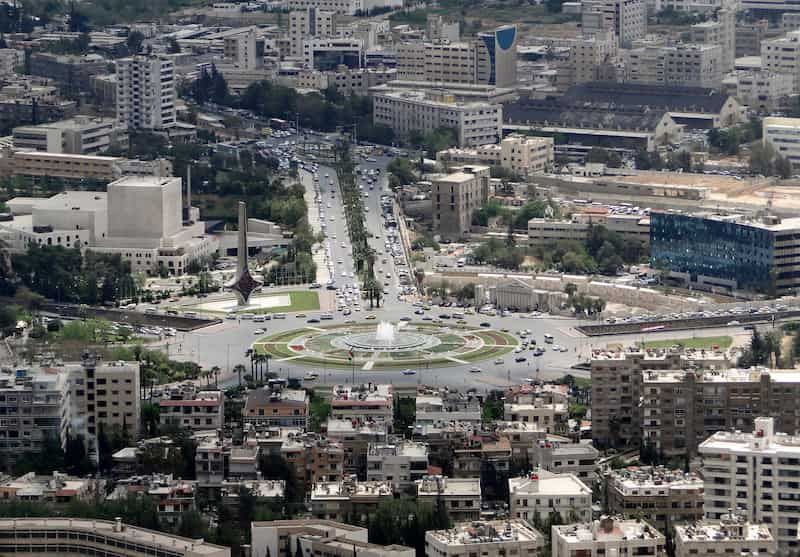
Damascus continues to hold importance in our modern world, maintaining its status as the capital of Syria. The old city of Damascus, including much of the area mentioned in biblical accounts, is now a UNESCO World Heritage site.
The ancient wall where Paul was let down in a basket still stands: “Then the disciples took him by night and let him down through the wall in a large basket” (Acts 9:25). Visitors today can see portions of this wall, though much has been rebuilt over the centuries.





